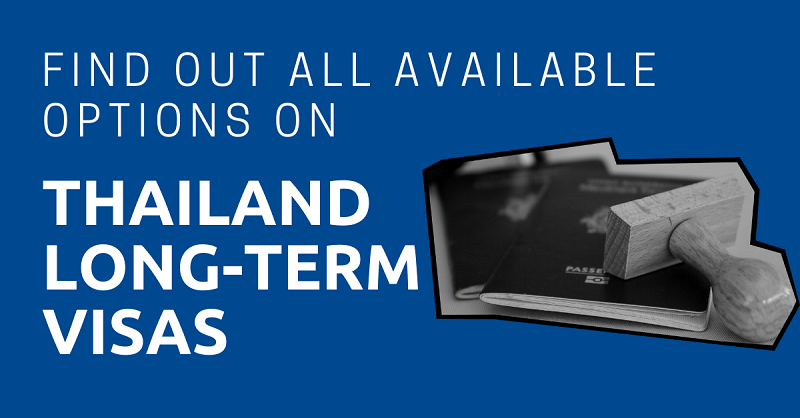
Getting a proper long-term visa is one of the first things you should do when moving to Thailand.
You can’t expect visa runs to work forever.
In reality, making a visa run is a temporary solution that only works a few times. If you keep doing it, in the end you might even be banned from entering Thailand.
In this article, we are going to guide you through the popular long-term visas in Thailand, including their requirements and how to get them.
Join ExpatDen Premium and discover the tips and tricks that long-term expats have used to qualify for a variety of Thai visas. With your membership, you get immediate and unlimited access to our library containing hundreds of exclusive guides that will help you move to and live in Thailand. You’ll discover how to:
- apply for a Thai visa on your own
- effectively prepare your visa documents so you don’t raise any eyebrows at the immigration office
- secure one of the secret education visas
…and so much more!
"*" indicates required fields
Disclaimer: This article may include links to products or services offered by ExpatDen’s partners, which give us commissions when you click on them. Although this may influence how they appear in the text, we only recommend solutions that we would use in your situation. Read more in our Advertising Disclosure.
Contents
Understanding Non-Immigrant Visas
Most long-term visas in Thailand are called Non-Immigrant visas. An abbreviation of the specific visa type is then added to the end of the name.
For example, a Business visa is called a Non-Immigrant “B” visa, while an Education visa is called a Non-Immigrant “ED” Visa.
A Retirement visa is called a Non-Immigrant “O” visa based on retirement. “O” in this case stands for “other”.
There are also other long-term visas that aren’t Non-Immigrant visas as well. The Elite visa is a good example of this.
Requirements
Each long-term visa comes with its own requirements. You can guess some of the requirements from the name of the visa.
For example, a business visa is for those who are working or doing a business in Thailand, and thus requires information about the company you’re working for, and an education visa is for students and requires information about the school you’re going to.
To fulfill the visa requirements, you need to show the right paperwork to the immigration officers. If you can do that, your chances of getting a visa are almost guaranteed.
While it’s seemingly straightforward, it can be bothersome as well because of the number of documents you need to prepare.
For example, to get a business visa, you need more than ten types of documents – from you, your previous employers, and from the company you are going to work for (or your own business).
In addition, the documents you need sometimes differ depending on where you get the visa (in your home country versus a country near Thailand), and even between immigration officers at the same location, and are subject to change at any time.
Therefore, when reading about the requirements for the various types of visas listed in this article, keep in mind that they are subject to change at any time, and you should always check directly with the place you plan to get your visa from to make sure you get the most accurate and up-to-date information.
Available Options
There are several long-term visa options available for Thailand. Let’s take a look at all of the common options.
Elite Visa
Alhtough the Elite visa is not a Non-Immigrant visa, it’s worth mentioning.
It’s a long-term visa available to anyone as long as you can afford their application fee and don’t have a criminal record.
There are various packages available. The application fee for the cheapest package starts at 600,000 baht for a 5-year visa.
If you plan to stay in Thailand longer than that, you can check out their superior extension package, giving you 20 years in Thailand with an application fee of 1,000,000 baht.
The application fee must be paid in full upfront.
It’s also quite easy to get an Elite visa. You just contact their representatives, send your documents online, and pay the application fee. Once everything is approved, you can go to the Thailand embassy or the immigration office and have your Elite visa affixed to your passport.
The Thailand Elite visa is also known as a privilege visa, or some may call it a golden visa or an investment visa.
The Elite Visa is available to anyone who can afford their application fee.
If you are interested in this option, please read our Elite visa review article to find out more information.
Business Visa
A business visa or a non-immigrant “B” visa, is for those who want to come to Thailand for work or to run a business.
This includes being a teacher in Thailand.
To get a business visa, you need to be hired by a company in Thailand first.
If you are a business owner, then you can use your own company to provide supporting documents to get the visa.
Please note that there’s a limitation on how many expats a company in Thailand can employ.
Unless it’s a company promoted by the Thailand Board of Investment, a normal company can only hire 1 expat per every 4 Thai employees per 2 million baht in capital.
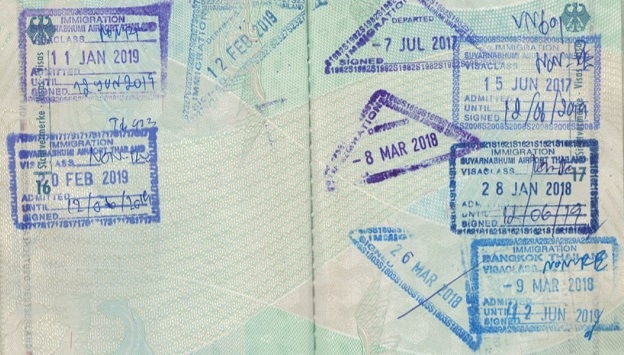
Because of this, sometimes it’s a challenge for an expat to find a job in Thailand.
If you are a digital nomad, you can’t get a business visa. There have been rumors about a digital nomad visa in Thailand for many years, but as of yet, it hasn’t happened.
The closest one so far is the SMART Visa. However, it’s only for experienced specialists employed by Thailand companies promoted by the Board of Investment.
To find out more, read our in-depth guide to the business visa.
Retirement Visa
As the name suggests, a retirement visa or a Non-Immigrant “O” visa based on retirement is for those who are going to retire in Thailand.
The retirement visa is available to anyone who is older than 50 who has health insurance and passes the financial requirements.
Please note that the requirements for the retirement visa change regularly.
For example, a few years ago, it suddenly required you to have mandatory health insurance.
The financial requirements are also subject to change.
Currently you need to have at least 800,000 baht in your Thai bank account for at least two months before applying for the visa, or show your proof of income, issued by your embassy, of at least 65,000 baht per month.
There are two types of retirement visas: a Non-Immigrant “O-A” and Non-Immigrant “O-X”.
They are basically the same type of visa, but the non-immigrant visa “O-X” is a 10-year visa, and comes with much higher financial requirements.
You can read our guide to the retirement visa to find out more information.
Marriage Visa
A marriage visa is a Non-Immigrant “O” visa based on marriage. It’s available to anyone who is legally married to a Thai citizen.
However, your eligibility for the marriage visa isn’t guaranteed simply by having a Thai spouse.
If you are male, you also need to have at least 400,000 baht in your Thai bank account or be making at least 40,000 baht per month.
Then you need to show your marriage certificate, either in Thai or English, and your family photos.
If you have kids, then birth certificates are also required.
After you get a marriage visa, immigration officers might stop by at your house to see that you are really living with your spouse. They may also ask your neighbors about it.
You can read our guide to the marriage visa to find out more information.
Dependent Visa
A dependent visa is officially called a Non-Immigrant visa “O” based on being a dependent.
You can make a dependent visa if your partner holds a business visa, is a permanent resident, or is a Thai citizen.
The dependent visa is also available to children younger than 18 years old if one of their parents holds a business visa, is a permanent resident, or is a Thai citizen.
A marriage visa and a guardian visa can also be considered as another type of a dependent visa as well.
Required documents for the dependent visa differ between each scenario.
Guardian Visa
A guardian visa is another type of Non-Immigrant “O” visa.
It’s mainly available for parents who are taking care of their children who are under 20 years old, whether they are Thai or international students who are currently studying in Thailand
This visa is popular with expat families who send their kids to international schools in Thailand.

To get this visa, you need to show your child’s birth certificate and proof of finances. The financial requirements are similar to a marriage visa.
Since it’s easier to get a guardian visa than a marriage visa, some expats who have children with a Thai spouse decide to go with the guardian visa, even they are fully eligible for the marriage visa.
Please note that the guardian visa might not be mentioned on the embassy website. Or it might be listed as a dependent visa.
Whatever the case, you should be able to get it as long as you have all of the required documents.
Education Visa
An education visa or a Non-Immigrant “ED” visa is for those who are going to study in Thailand at an organisation approved by the Ministry of Education.
You can’t just go to any language school in Bangkok and expect them to get you an education visa. Unless they are approved by the Ministry of Education, they can’t help you get the education visa.
Fortunately, it doesn’t need to be a language school. The visa can be for cooking classes, Muay Thai classes, or even a diving course. As long as they’re approved by the Ministry of Education, they can help you get the visa.
We have a list of the schools that can help you get an education visa here.
However, an education visa isn’t truly a long-term visa. The duration of stay depends on your course. It can be a few months to a few years.
If you are a university student, you are able to live in Thailand for four years with an education visa.
If you take a cooking class, it might be only two months.
Another thing is that you need to regularly attend classes and be able to show that you are really learning. For example, if you get an education visa for studying at a Thai language school, the immigration office will test your Thai language.
If you fail the test, they might not give you a visa.
You can read our guide to the education visa to find out more information.
How Does it Work?
When getting a Non-Immigrant visa the first time, you will only get a 90-day visa.
Within that 90 days, you need to prepare another set of documents to extend your visa for a year or more. It’s officially called an extension of stay.
It requires additional documents depending on your visa type. For example, you need to get a work permit for a business visa.
However, for some visas, like the retirement visa, you might be able to get a one-year visa straightaway.
For a business visa, the visa extension duration depends on the type of visa and immigration officer’s decision. It can be one year, two years, or three years.
Extending Your Visa
You can extend your Non-Immigrant visa at any immigration office in Thailand 30 days before it expires.
It requires similar documents to the visa application. But this time, you will get a one-to-ten-year visa extension straight away.
Single-Entry or Multiple-Entry?
When applying for or extending a Non-Immigrant visa, you can choose between a single-entry or a multiple-entry visa.
Single-entry is cheaper, but you need to get a re-entry permit if you want to leave Thailand and come back on the same visa. If you don’t, your visa will be cancelled automatically when you leave the country, and you will need to get a new one.
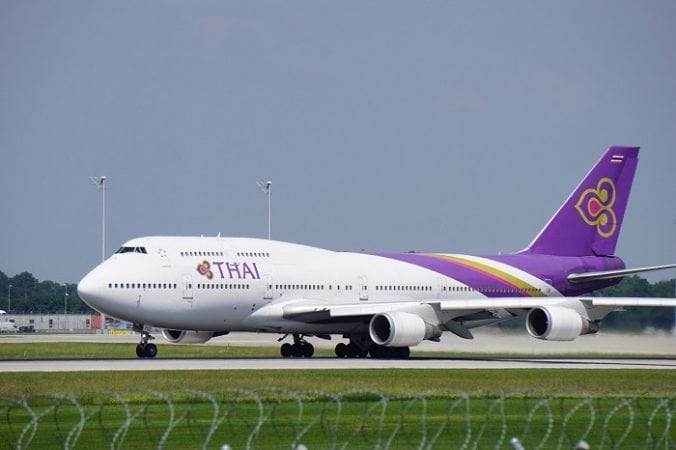
With a multiple-entry visa, you can leave Thailand as many times as you want without having to worry about the re-entry permit.
Therefore, it’s best to get the multiple-entry visa from the get go unless you plan to stay in Thailand throughout the duration of your visa.
Application
To apply for a Non-Immigrant visa, most of the time you need to do it outside of Thailand. It can be at a Thailand embassy or consulate.
For some types of visas, such as the retirement visa, you may need to do it from your home country.
Here’s a list of Thailand embassies and consulates worldwide.
Although it’s sometimes possible to apply for a Non-Immigrant visa in Thailand, it’s more complicated and requires more documents.
This is why many people just go to Cambodia, Laos, or Malaysia and apply for a long-term visa there.
If you want to do it in Thailand, you can go to any immigration office.
Visa extensions can be done within Thailand at any immigration office.
Cost
In general, it costs $80 USD per year for a single-entry visa and $200 USD per year for a one-year multiple-entry visa.
In Thailand it’s 1,900 baht per year for a single-entry visa and 3,800 per year for a multiple-entry visa.
90-Day Notification
All Non-Immigrant visa holders, including Elite visa holders, need to do 90-day notifications.
Basically, you need to notify the immigation office every 90 days of your address in Thailand. It can be done at your location immigration office, by mail, or online.
Cancellation
Long-term visas can be cancelled for mainly three reasons:
- You have a single-entry visa and leave Thailand without getting a re-entry permit.
- You break Thailand’s laws.
- You no longer fullfill the main requirements of the visa. For example, you no longer work with a company as a business visa holder or you divorce your spouse as a marriage visa holder.
Next Steps
If you plan to stay in Thailand for a very long time, you can consider becoming a permanent resident in Thailand.
The minimum requirement is to hold any type of Non-Immigrant visa for 3 years consecutively.
With permanent residence, you can stay in Thailand forever without having to apply for a visa again. You are also able to buy property, your family members can apply for dependent visas based on your permanent resident status, and you can even apply for Thailand citizenship after that.
Now, on to You
We hope that this article answers everything you need to know about how to stay in Thailand long-term with the right visa.
Your next step is to contact your local immigration office in order to find out what documents you need in order to apply for an appropriate visa for your situation.
If you don’t qualify for any type of visa, then, you might want to check out the Elite visa.




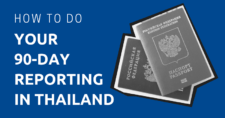

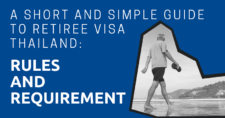
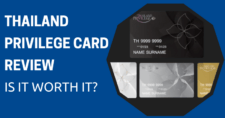

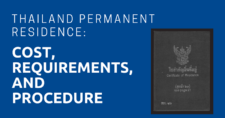
i like to know the requirements to renew my marriage visa, singburi immigration says 400 000 baht in the account, directory, immigrariobangkok.com says, a combination of the money cleared in a thai bank account and an annual pension totaling at least 400 000 baht, my canadian pension is about 380 000 baht a year, so, what is right, i know, different immigration offices say different things, if my pension and my bank account is over 500 000 baht, why does singburi immigration does not accept it, i have an account with my wife, over 3 000 000 baht, but i don’t want to use the money, my account is 420 000 baht, i ask this question at different offices, but never received an answer, even the thai immigration did not answer my question, me, thank you, gary